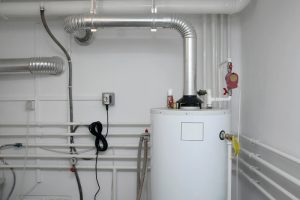 You may have heard the term “hard water” before, especially if you’ve ever read any of our other blogs. It can sound like a pretty intimidating term, in regards to your water quality, but fortunately it’s not actually harmful to your health (it’s another story for your plumbing system though, which we’ll get to below).
You may have heard the term “hard water” before, especially if you’ve ever read any of our other blogs. It can sound like a pretty intimidating term, in regards to your water quality, but fortunately it’s not actually harmful to your health (it’s another story for your plumbing system though, which we’ll get to below).
Hard water describes water that has an excess of the minerals calcium and magnesium. And in your Glenview, IL water heater, this hard water causes a process called scaling—when the deposits are left behind inside the tank. In a faucet it’s fairly easy to get rid of scaling, but in a water heater it’s a different story.

 Winter is a popular time for small indoor remodeling projects, since you aren’t spending a whole lot of time outdoors. But those small projects can be come huge to-dos if not done correctly, or with professional assistance.
Winter is a popular time for small indoor remodeling projects, since you aren’t spending a whole lot of time outdoors. But those small projects can be come huge to-dos if not done correctly, or with professional assistance.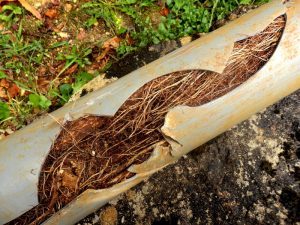 In today’s world, there are probably a few things you take for granted as a homeowner. The fact that your water heater will always provide you with hot water, the fact that your dishwasher and washing machine will clean your dishes and clothes respectively, without error. And the fact that water will flow flawlessly through your pipes day in and day out.
In today’s world, there are probably a few things you take for granted as a homeowner. The fact that your water heater will always provide you with hot water, the fact that your dishwasher and washing machine will clean your dishes and clothes respectively, without error. And the fact that water will flow flawlessly through your pipes day in and day out. In addition to causing considerable damage to your home, plumbing issues can potentially impact your water bills. Even the smallest leak can account for significant water loss—gallons, over the course of a year. Fortunately, if you do run into any sort of plumbing problem, you can rely on our
In addition to causing considerable damage to your home, plumbing issues can potentially impact your water bills. Even the smallest leak can account for significant water loss—gallons, over the course of a year. Fortunately, if you do run into any sort of plumbing problem, you can rely on our 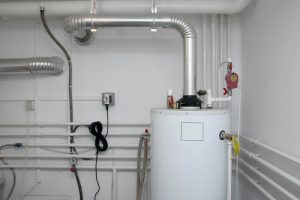 No matter what season we’re in, and no matter what the temperatures are outside, there’s one appliance within your home that you need on a daily basis—and that’s your water heater. It’s easy to take this system for granted, until something goes wrong with it and you aren’t able to get hot water from your taps.
No matter what season we’re in, and no matter what the temperatures are outside, there’s one appliance within your home that you need on a daily basis—and that’s your water heater. It’s easy to take this system for granted, until something goes wrong with it and you aren’t able to get hot water from your taps.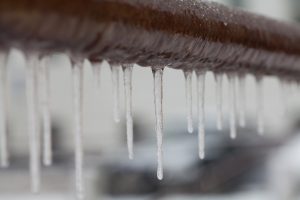 If you haven’t already taken steps to winterize your home, now is certainly the time to do it, before we’re under heavy amounts of snow. Winterizing your home includes fixing any drafts that can lower your HVAC efficiency, making sure your heating system is maintained, and ensuring your pipes are protected.
If you haven’t already taken steps to winterize your home, now is certainly the time to do it, before we’re under heavy amounts of snow. Winterizing your home includes fixing any drafts that can lower your HVAC efficiency, making sure your heating system is maintained, and ensuring your pipes are protected.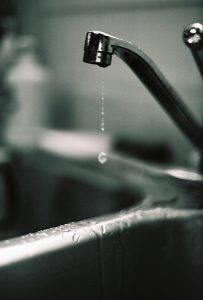 Let’s say you’ve found yourself with unexplainable high water bills. Naturally, your water bills will change each month, depending on how much you use certain plumbing fixtures (for instance, you won’t be using your irrigation system in the dead of winter!) But when your utility bills spike for no reason, it’s time to take a close look at what’s going on with your plumbing.
Let’s say you’ve found yourself with unexplainable high water bills. Naturally, your water bills will change each month, depending on how much you use certain plumbing fixtures (for instance, you won’t be using your irrigation system in the dead of winter!) But when your utility bills spike for no reason, it’s time to take a close look at what’s going on with your plumbing.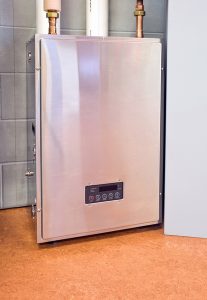 Has it come time to replace the water heater in your home? Perhaps yours has broken down, or you’re tired of paying for frequent repairs. Whatever the reason is that you’re looking to schedule a water heater replacement, remember that there are options to consider. There’s no rule that you have to stick with the same type of water heater you’ve always had.
Has it come time to replace the water heater in your home? Perhaps yours has broken down, or you’re tired of paying for frequent repairs. Whatever the reason is that you’re looking to schedule a water heater replacement, remember that there are options to consider. There’s no rule that you have to stick with the same type of water heater you’ve always had.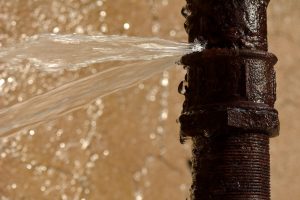 Have you noticed a seemingly minor clog somewhere in your home? Maybe your kitchen sink drain is a bit sluggish. Or perhaps you noticed your toilet bubbling while using another plumbing fixture. Your first instinct may be to go get some of that liquid drain cleaner you can buy at pretty much any hardware store, and solve your problem that way. Unfortunately, not only is this only a temporary solution, but it can also actually damage your plumbing.
Have you noticed a seemingly minor clog somewhere in your home? Maybe your kitchen sink drain is a bit sluggish. Or perhaps you noticed your toilet bubbling while using another plumbing fixture. Your first instinct may be to go get some of that liquid drain cleaner you can buy at pretty much any hardware store, and solve your problem that way. Unfortunately, not only is this only a temporary solution, but it can also actually damage your plumbing.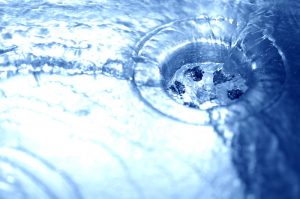 Many homeowners only call for
Many homeowners only call for